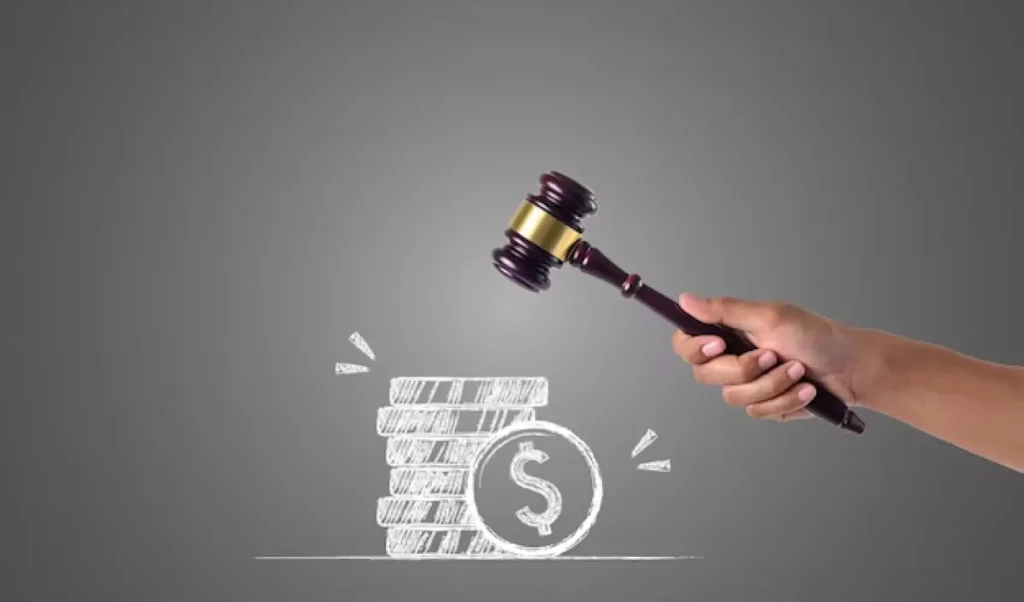Understanding What Happens If You File Your Taxes Late: IRS Tax Deadlines, Owed Tax Amount, and More
When life’s unexpected challenges lead to missing the tax deadline, the consequences can be substantial. The failure to file your tax return on time can trigger failure-to-file penalties from the Internal Revenue Service (IRS), adding to your tax-related stress. If you find yourself in a situation where you owe tax but have missed the deadline, it’s important to act promptly.
Filing a tax return, even after the deadline, is a crucial step toward mitigating the potential penalties and interest that can accumulate. The IRS has established a minimum penalty for filing more than 60 days after the tax year deadline, based on your tax liability.
Navigating this complex terrain requires careful consideration. Seeking professional advice or taking advantage of IRS programs designed to assist taxpayers in such situations can be your saving grace. Remember, filing your tax return late is a better choice than not filing at all. The sooner you address the issue, the more manageable the penalties and interest will be, ensuring that you fulfill your annual tax obligation without unnecessary financial burden.
Consequences of Filing Taxes Late
Meeting the tax due date is paramount. If you’re required to file a return, ensuring you file on time avoids the added stress of penalties and interest. Filing late can lead to a failure-to-file penalty, which is assessed as a percentage of your unpaid taxes, and it can accrue monthly. The sooner you file, the sooner you can address any balance due or claim any refund you’re entitled to, avoiding late payment issues.

Extensions and Penalties
When you can’t meet the tax deadline, requesting a tax extension is a prudent choice. This extension provides additional time to prepare your return, but it’s crucial to note that it doesn’t grant an extension for paying taxes you owe. You’re still required to estimate and pay your taxes to minimize late payment penalties and interest charges.
Late Filing and Tax Refunds
Delayed Refunds
Late filing can result in delayed tax refunds, impacting your financial plans. The IRS won’t issue refunds until they receive your return. If you’re due a refund, it’s in your best interest to file as soon as possible to access the funds you’re entitled to.
Amending Late Returns
Amending a tax return after a late filing can be a complex process. If you’ve discovered errors or omitted information, it’s wise to consult a tax professional to ensure the necessary corrections are made accurately. Addressing any outstanding taxes and potential late payment penalties is crucial, as it contributes to your overall financial picture.
IRS Late Filing Penalties
Filing your taxes late can trigger a series of financial repercussions imposed by the Internal Revenue Service (IRS). The IRS takes tax deadlines seriously, and failure to meet them can result in various penalties and interest charges. These penalties can add up quickly and significantly impact your financial well-being.
Civil Penalties for Filing Late
When you file your taxes late, you may incur civil penalties. These penalties typically include fines and additional interest on any unpaid taxes. The fines are calculated as a percentage of your unpaid tax amount and can accumulate month by month. Consequently, the longer you delay filing, the more these penalties can grow. It’s essential to address your late filing promptly to minimize the financial impact.
Failure-to-file Penalty
When you fail to file your return on time, you may incur a failure to file penalty. This penalty is a percentage of your unpaid taxes, and it can accumulate monthly. It’s an additional financial burden that grows the longer you delay, which underscores the importance of addressing your tax responsibilities promptly.

Criminal Charges
In rare and extreme cases, consistently failing to file taxes can lead to criminal charges. The IRS takes non-compliance seriously, and avoiding this extreme consequence is essential. To stay in good standing and prevent the risk of criminal charges, it’s vital to address your late filings and tax obligations promptly.
Owe Money to the IRS
If you owe money to the IRS and fail to meet your filing deadline, you could find yourself facing further financial difficulties. The IRS expects taxpayers to pay taxes owed on time, and missing the deadline can lead to additional penalties and interest charges.
- Late Payment Penalties: Failing to pay taxes by the tax deadline can result in late payment penalties. These penalties are calculated as a percentage of the unpaid tax amount and can accrue monthly. To minimize these penalties, it’s crucial to pay what you owe as soon as possible.
- Tax Debt Accumulation: Owing taxes can lead to an accumulation of tax debt. This includes the original amount you owe, any late payment penalties, and interest charges on the unpaid tax. Addressing your tax debt promptly is essential to prevent further financial strain.
- Balancing Act: Balancing the amount you owe to the IRS with your other financial responsibilities is a challenge. Missing the tax deadline and incurring penalties can disrupt your financial plans and create additional stress.
- Payment Plans and Options: If you’re unable to pay your tax bill in full, the IRS offers various payment options and plans. These can help you manage your tax debt and avoid severe financial consequences. It’s advisable to explore these options and contact the IRS to discuss your situation.
April Tax Deadline
The April tax deadline is a critical date to remember. It’s the cutoff for filing your federal income tax return, and missing this deadline can lead to late filing penalties, interest charges, and potential complications.
Avoiding the Late Filing Hassle

Tax Professionals
If you constantly find yourself filing late, it’s advisable to consider working with a tax professional. They can help you stay organized, meet deadlines, and ensure your taxes are done accurately and on time. Their expertise can be invaluable in managing your tax obligations.
E-filing and Filing Online
E-filing and online filing options have become popular choices for filing taxes. These methods not only make it easier to file promptly but also reduce the risk of errors and delays associated with paper filing. Additionally, some electronic filing options may even allow you to file for free.
Organizational Tips
Implementing good record-keeping and organizational habits is key to avoiding late filings in the future. Keep track of important tax documents throughout the year, such as receipts, income statements, and deductions. Staying organized can help streamline the filing process and reduce the chances of a late return, ensuring you don’t run afoul of the failure-to-file penalty and other associated consequences. Remember, it’s essential to address late filings promptly as the longer you wait, the more penalty and interest charges may apply.

Conclusion: Paying Your Taxes in 2023
Paying your taxes on time is important to avoid potential consequences. In 2023, filing your taxes late can result in a range of negative outcomes. One consequence is facing financial penalties. The tax authorities may impose additional fees and interest on the outstanding amount, which can significantly increase your tax liability. These penalties can add up quickly, making it even more difficult to settle your debt. Another consequence of late tax filing is the potential for legal troubles.
If you repeatedly fail to file your taxes or intentionally evade paying what you owe, you may face legal action from the government. This can include lawsuits and even criminal charges, which can result in hefty fines and even imprisonment. Therefore, it is crucial to meet all the deadlines and fulfill your tax obligations in a timely manner to avoid these unfortunate consequences.
If you consistently file taxes late, consider working with a tax professional and implementing better organizational habits to ensure timely and accurate filings. It’s essential to take this obligation seriously and seek help if you struggle with meeting deadlines. By staying organized and informed, you can avoid the stress and complications that come with late tax filings.
FAQs
- Can I request an extension if I can’t file on time?
Yes, you can request an extension, which gives you additional time to file, but it doesn’t extend the time to pay any taxes owed.
- How can late tax filings affect my credit score?
Late tax filings typically don’t directly affect your credit score, but unpaid taxes can result in IRS collection efforts, which may impact your credit indirectly.
- Are there special considerations for self-employed individuals?
Self-employed individuals often have different filing requirements and may need to make quarterly estimated tax payments.
- What should I do if I consistently file taxes late?
If you consistently file taxes late, consider working with a tax professional and implementing better organizational habits to ensure timely and accurate filings.








